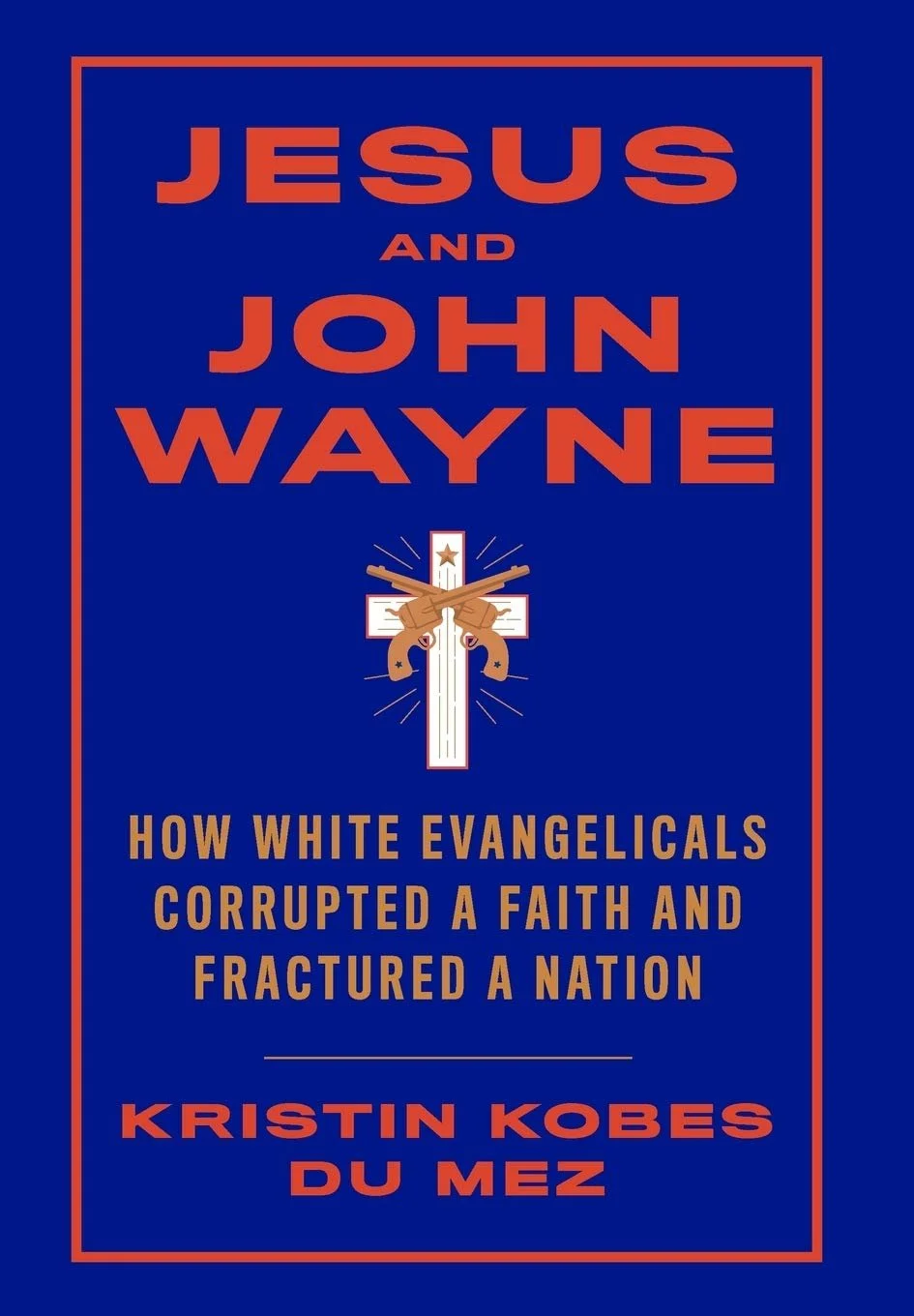Jesus and John Wayne
If you enjoyed this review, please consider purchasing this book (or Kindle) from my Amazon Associates link: https://amzn.to/2YNEIhs. The commissions I receive from your purchase help pay for the costs of running this website. Thanks for your support!
When Trump won the election, I know a lot of Christians who scratched their heads in disbelief. They couldn’t figure out how so many of their fellow congregants (81%) supported such a blatantly immoral, irreligious dude. How does that reconcile with a love-thy-neighbor New Testament Jesus? WWJD-- would Jesus have elected an asshole?
There are the usual explanations-- that Trump was the “lesser of two evils”, he’d pack the court with conservative justices, he’d restrict abortion, etc. In Jesus and John Wayne, Kristin Kobes Du Mez makes a more compelling, cohesive argument that white evangelical support for Trump makes sense in a larger historical context. It’s not an anomaly-- it’s part of the trend.
As a history professor, she details the parallel trajectory of evangelical social and political trends starting from the 1940s. An “evangelical identity” doesn’t just involve religious beliefs; it’s a bundle of opinions on family, foreign policy, American nationalism, purity culture, etc. Since the Cold War, evangelicals have praised a “manly” man. She gives an enormous amount of evidence tracking the development of a “cult of masculinity”. A gentle Jesus has been replaced with a rugged, gritty Jesus; so, masculine heroes emerged like John Wayne, Mel Gibson, the Duck Dynasty guys, and...Donald Trump. Based on this long-term trend, Du Mez claims that evangelicals weren’t supporting Trump in spite of his brashness but because of it.
Du Mez has a clear agenda but she also integrates an astounding amount of research. Soooo many sources. Plus, she includes a bunch of quotes with context. So, she’s not paraphrasing some f*cked up thing that James Dobson did-- she’s quoting him directly. Even if you disagreed with Du Mez’s overall argument, it would be difficult to come away from the book feeling comfortable with the sordid past of many evangelical leaders. That being said, she doesn’t include many alternative viewpoints. Sure, she’s trying to describe historical trends, and the numbers do most of the talking, but she does paint a pretty wide evangelical brush, and I’m sure that would annoy some dissenting believers.
This book is informative and, because she is so thorough, I’d be able to articulate what I learned in conversations. That being said, I like this sort of stuff. I don’t recommend it to you if you don’t like reading about religion. Duh. While the book appears aimed at readers of all levels of religious knowledge, it’s very helpful to know the basics. She makes multiple biblical references and throws a lot of evangelical organizations at you. Do you want to be looking stuff up every 5 min? Probably not. Still, the writing is clear and strong, which would make up for some gaps in knowledge. Each chapter is summarized well, and she’s every English teacher’s wet dream because she ties all of her ideas back to her thesis. Overall, Jesus and John Wayne receives 4 out of 5 flames.


